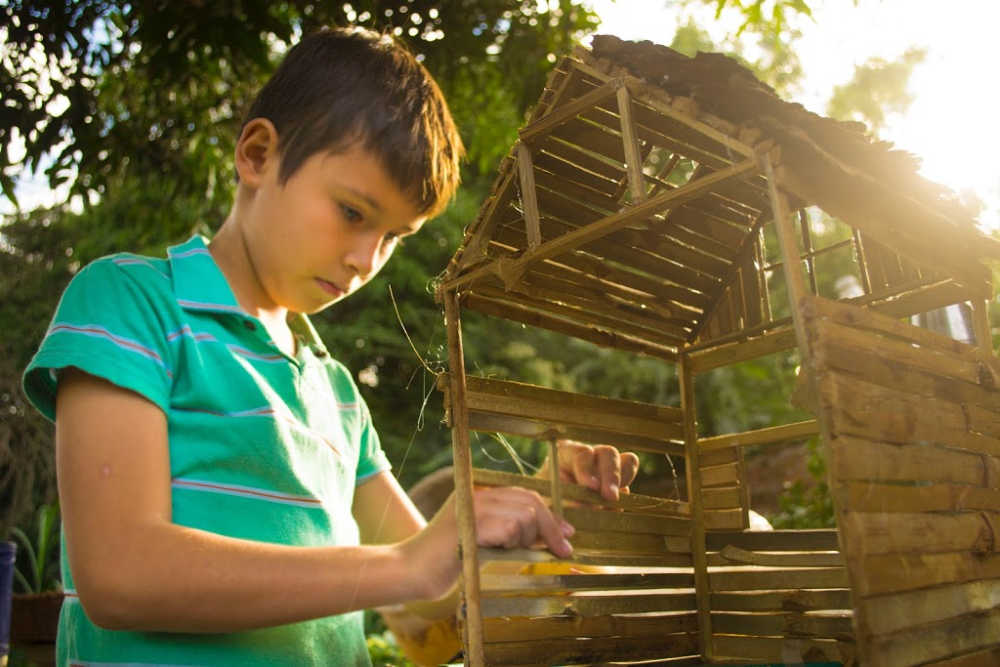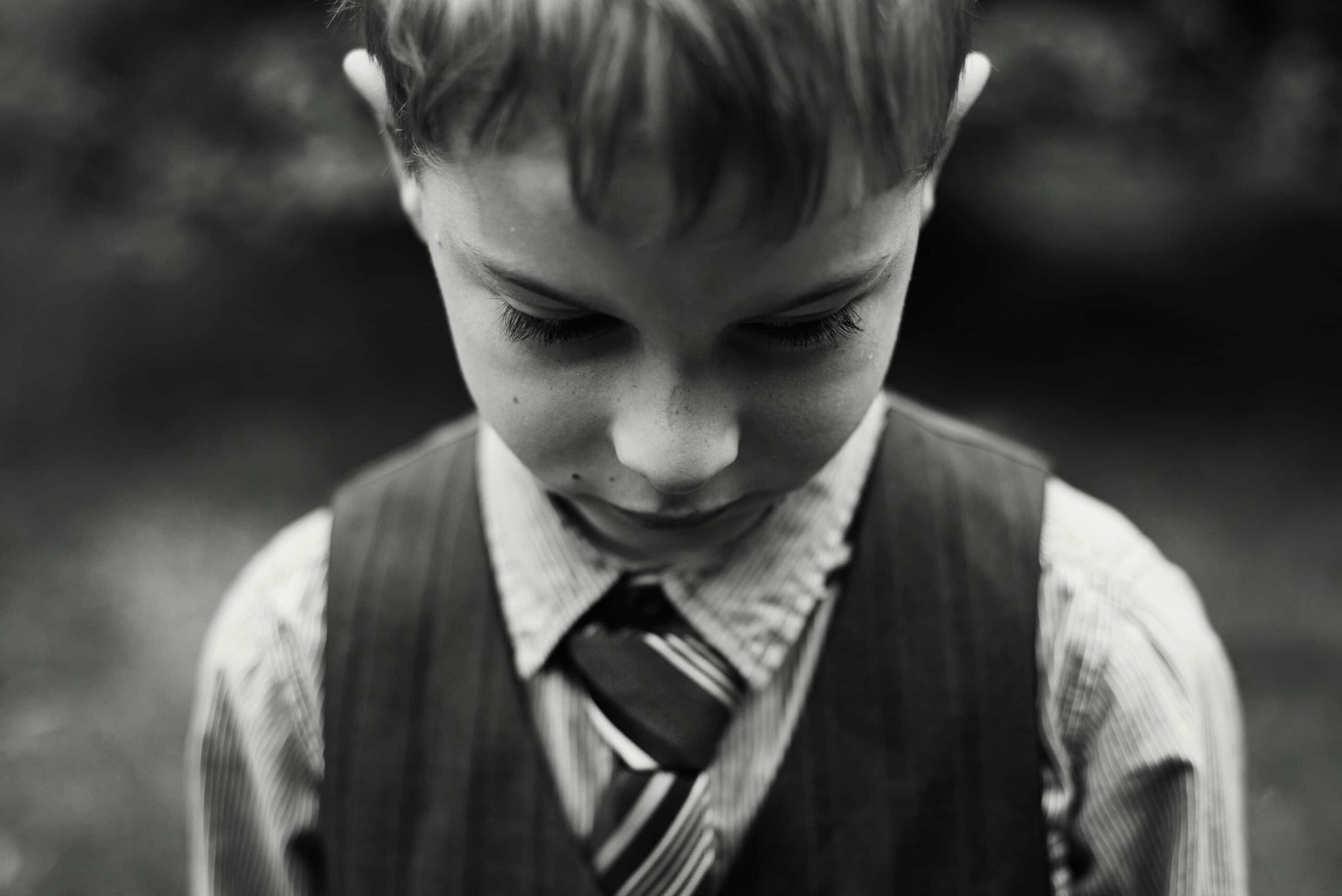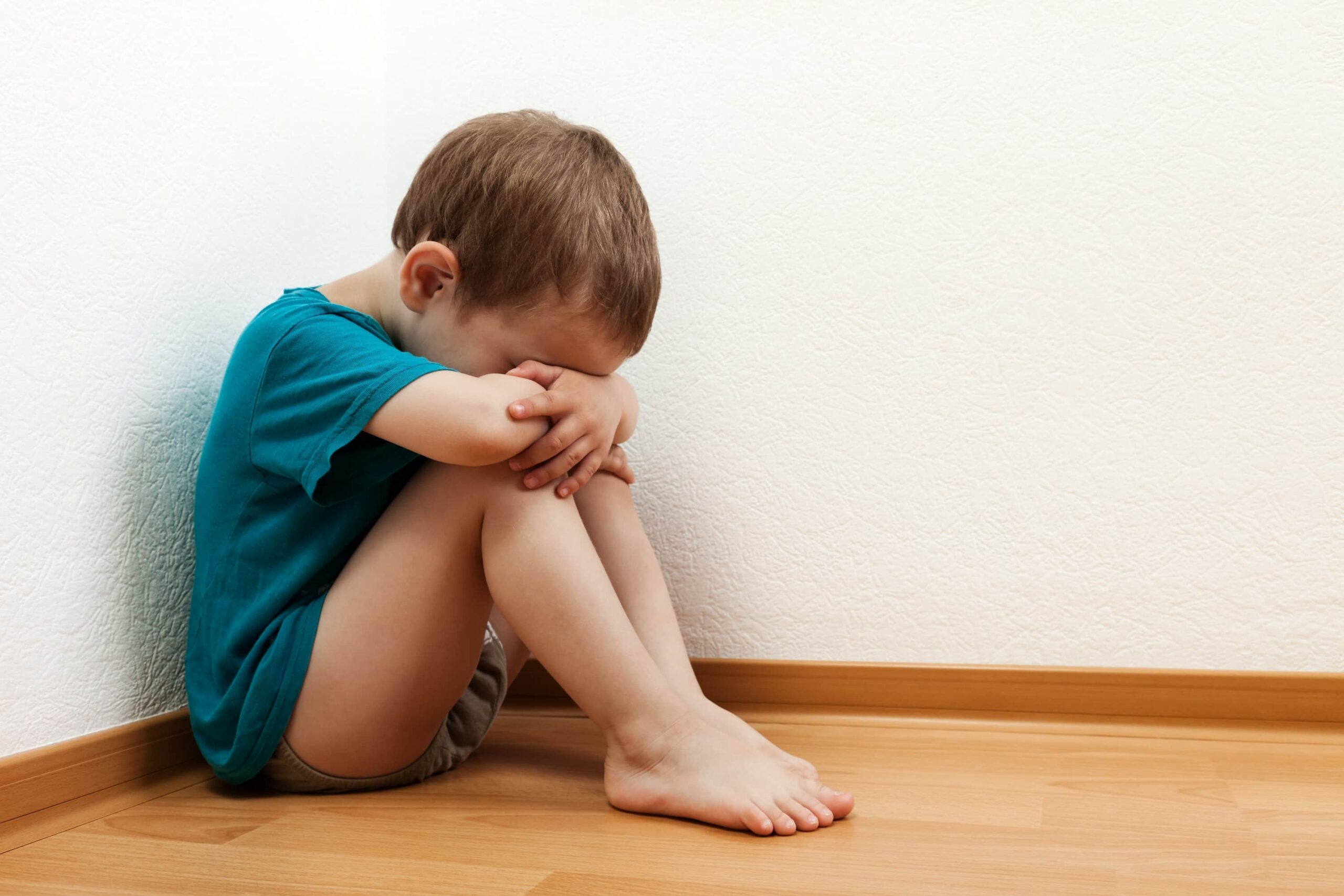Table of Contents
Which parenting style is most encouraged in modern America? Research suggests that authoritative parenting gives kids the best chance of success.
Do you know your parenting style?
No, I’m talking about how you put together an outfit or plan birthday parties. If only it was that easy. I’m talking about how you handle conflict, challenging behaviors, and big emotions.
There are four main parenting styles, each with distinct characteristics that lead to positive or negative outcomes for kids.
But how do I know what my parenting style is? Can I change my parenting style?
We will answer all those questions and more, including some positive parenting solutions to shift your parenting to a more authoritative approach and some authoritative parenting examples.
What Are Parenting Styles?
Psychologist Diana Baumrind conducted extensive research on parenting practices and their impact on child development in the 1960s. Using her research, she developed a framework that rated parenting approaches based on responsiveness and demandingness.
The original parenting styles Baumrind proposed were Authoritarian, Authoritative, and Permissive. In the 1980s, Stanford researchers Eleanor Maccoby and John Martin added the Uninvolved/Neglectful style.
The parenting styles framework has become invaluable in child psychology and parenting research. They help us understand the effect parenting has on child development and long-term outcomes. Parenting research is constantly evolving, but parenting styles can guide us as we navigate the challenges of parenthood.
Authoritarian Parenting Style

“Because I said so, that’s why. No more arguments; just do as you’re told.”
An authoritarian parenting style is characterized by low warmth and low responsiveness. Authoritarian parents are strict, inflexible, and have high expectations of their children. They equate obedience with love and don’t communicate openly with their kids.
Think of Merida’s mother, Queen Elinor, from the movie Brave. She had exacting standards for her daughter’s behavior and would dictate the rules without explaining or listening to how Merida felt. Queen Elinor saw her daughter’s behavior as a reflection of her parenting abilities and would punish Merida for showing independence and critical thinking.
However, authoritarian parenting often has adverse outcomes for kids and damages the parent-child bond. Merida constantly felt unseen and unheard by her mother and rebelled against her restrictions and expectations.
An authoritarian parenting style doesn’t support positive parenting, and kids may be more aggressive and have emotional and behavioral challenges.
Affect on Kids
Warmth and responsiveness, two things authoritarian parents don’t show, can help protect kids from toxic stress. That means children raised by authoritarian parents may be more at risk of inflammatory diseases caused by stress.
In the movie, we see Merida’s behavior worsen the more controlling her mother becomes. An authoritarian approach tries so hard to force obedience and compliance, but it actually creates behavior problems long-term. Externalizing behaviors like defiance and aggression usually stem from internal dysregulation. Authoritarian parenting can lead to mental health issues like anxiety, depressive symptoms, and poor self-regulation, manifesting as bad behavior.
Authoritarian parents have incredibly high standards for their kids, and this can lead to an academic disadvantage. Many kids raised in an authoritarian environment live with the constant pressure of pleasing their parents, and they are criticized and shamed when they fail to live up to their standards. Negative feedback isn’t helpful for learning or maintaining healthy relationships.
Something to note, though, is that culture makes a difference. If high academic standards and strict rules are the cultural norm, kids may not respond badly to the rigid environment.
Authoritative Parenting Style
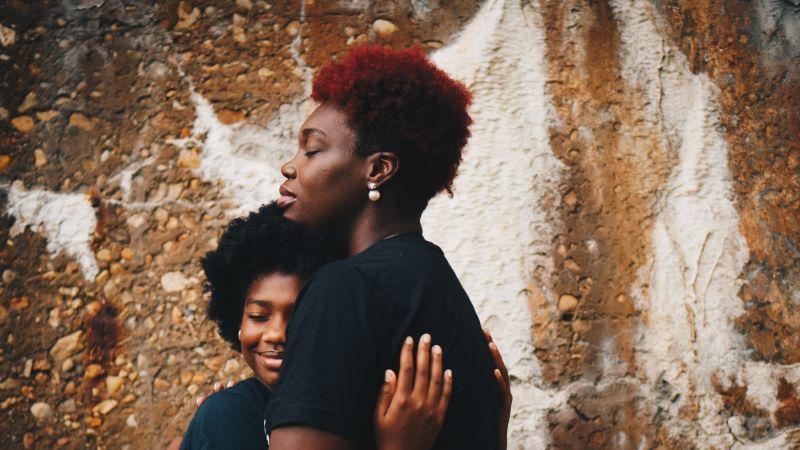
“I understand your concerns, but we have this rule because it helps keep you safe. Let’s talk about it and see if we can find a solution that works for both of us.”
Do you remember Mufasa from The Lion King? Simba’s dad is a great example of an authoritative parent. Authoritative parenting is characterized by high responsiveness and high demandingness. They have high expectations but are warm, nurturing, and supportive.
Just like Mufasa, authoritative parents explain the rules to their kids. They set fair boundaries but are firm and consistent with discipline. I often think of the scene where Mufasa and Simba sit under the stars talking after the hyena incident at the elephant graveyard. Mufasa communicates openly with Simba and then connects with him as they play in the long grass. It’s a beautiful moment demonstrating how authoritative parents encourage cooperation through positive interactions rather than threats or punishment.
Affect on Kids
Authoritative parenting has better outcomes for kids. They are more independent, self-reliant, and well-behaved. That’s because parents validate their emotions, encourage critical thinking, and allow for autonomy.
Research also shows authoritative parenting fosters creativity, problem-solving skills, and healthy relationships. Kids raised by authoritative parents are more self-confident and have better emotional regulation.
An authoritative parenting approach helps to foster a growth mindset, which has an effect on academic performance. When kids aren’t punished for their mistakes and instead see them as learning opportunities, they excel.
Permissive Parenting Style

“Well, I know you don’t like it, and it’s your choice if you want to do it or not. I don’t want to force you into anything.”
Have you watched The Princess and the Frog? Tianna’s best friend Charlotte had a permissive parent. Mr. La Bouff was warm and attentive, but he made no demands on Charlotte and would give her whatever she wanted to avoid conflict or hurt feelings.
Permissive parenting is characterized by high responsiveness but low demandingness. Permissive parents are scared to set limits and certainly don’t use consequences. They may even seem more like a friend than a parent.
Although permissive parents aren’t great at boundary-setting, they are nurturing and warm. They are emotionally supportive and responsive but avoid confrontation and punishment. Mr. La Bouff was constantly giving Charlotte gifts, whether it was a new dress or a puppy. Permissive parents often use gift-giving and bribery to keep their kids happy.
Permissive parenting is an indulgent approach to raising kids, with a definite emphasis on freedom over responsibility.
Affect on Kids
Permissive parenting can have adverse effects on kids. Research shows that children raised by permissive parents may lack self-discipline, have poor social skills, and crave external validation. They may also struggle with self-regulation.
A study on social and physical aggression in kids aged 9-18 also found that permissiveness led to higher levels of social aggression. That may be because they grow up lacking boundaries, responsibilities, and a sense of accountability.
Food For Thought
Something interesting to consider, however, is how we define permissiveness. Although there are some negative outcomes associated with a relaxed parenting style, the fact that permissive parents are emotionally supportive, warm, and responsive also means numerous positive outcomes.
The idea of permissiveness may have something to do with culture. For example, a Spanish study of 1416 teens found that permissive and authoritative parenting styles had better outcomes than authoritarian and neglectful parenting styles.
The study assessed teens based on four outcomes.
- Self-esteem: academic, social, emotional, family and physical
- Psychosocial maladjustment: hostility/aggression, negative self-esteem, negative self-adequacy, emotional responsiveness, emotional instability, and negative worldview
- Personal competence: social competence, grade point average, and number of failing grades
- Problem behaviors: school misconduct, delinquency, and drug use
What was interesting, though, is that across the four outcomes, the results supported the idea that in Spain, the best parenting style is a permissive one. The adolescents’ scores in the four sets of youth outcomes were equal to or better than the authoritative style of parenting.
Uninvolved Parenting Style
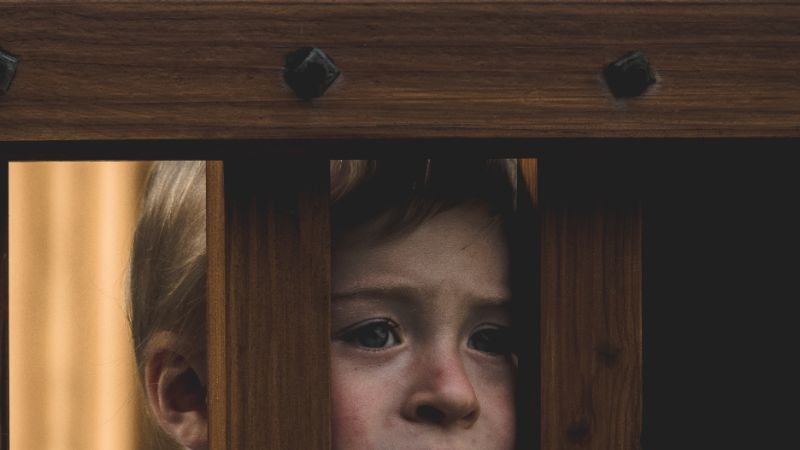
“Whatever, do whatever you want. It’s not my problem.”
Did you ever watch Matilda? Her parents epitomize what uninvolved or neglectful parenting looks like. They were completely involved with their own lives and often forgot Matilda even existed.
Uninvolved parenting is characterized by low responsiveness and low demandingness. Neglectful parents don’t respond to their children’s needs and offer little love, warmth, and affection. They don’t give guidance and let their kids make their own decisions.
Although they may provide for basic needs, uninvolved parents aren’t emotionally available. This parenting style is controversial because it isn’t always intentional. Sometimes, neglectful parents simply raise their kids the way they were raised and are in a situation that makes effective parenting extremely challenging.
Affect on Kids
Kids raised by uninvolved parents generally don’t get lucky like Matilda. They typically have poor outcomes like behavior issues, a lack of emotional regulation, anxiety, and low self-esteem.
In fact, the research found that kids with uninvolved parents drank alcohol almost twice as much and smoked twice as much as kids raised by authoritative parents.
Parenting Styles and the Parent-Child Bond
Your parenting style makes a significant impact on the relationship you have with your child.
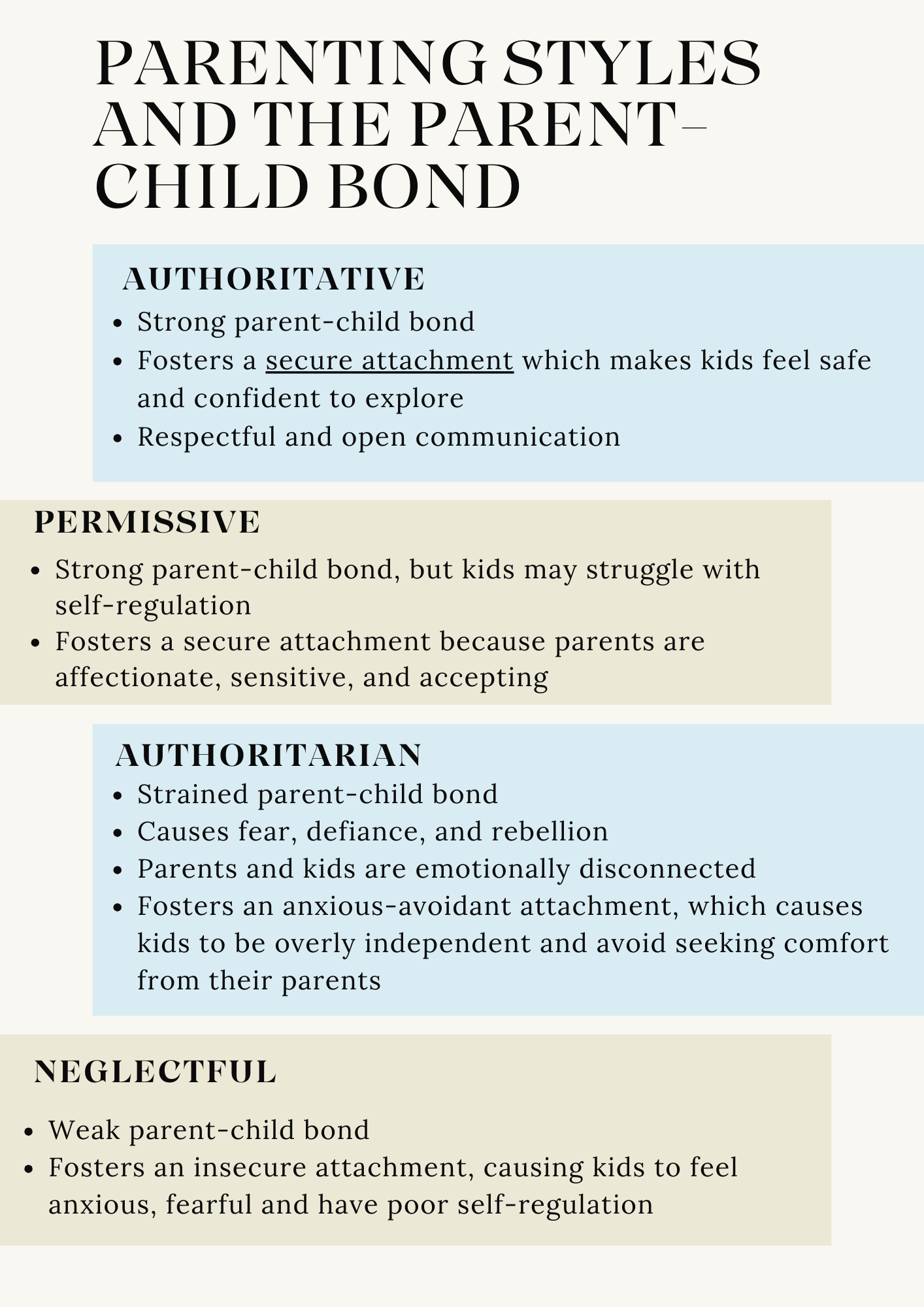
Authoritative
- Strong parent-child bond
- Fosters a secure attachment which makes kids feel safe and confident to explore
- Respectful and open communication
Authoritarian
- Strained parent-child bond
- Causes fear, defiance, and rebellion
- Parents and kids are emotionally disconnected
- Fosters an anxious-avoidant attachment, which causes kids to be overly independent and avoid seeking comfort from their parents
Permissive
- Strong parent-child bond, but kids may struggle with self-regulation
- Fosters a secure attachment because parents are affectionate, sensitive, and accepting
Neglectful
- Weak parent-child bond
- Fosters an insecure attachment, causing kids to feel anxious, fearful and have poor self-regulation
What Affects Your Parenting Style?
Parenting styles are complex and dynamic. The way you parent your kids is influenced by numerous factors, and the tricky part is those factors are constantly changing. Just when you think you have parenting figured out (or at least part of it), your child grows and changes, and you have to start all over again.
Your childhood and upbringing have a lot to do with how you raise your kids. Unless you consciously try to do things differently, you will parent the same way you were parented. It takes intention, perseverance, and grace to parent in a more positive and present way than you experienced as a child.
Parenting styles are also influenced by personal values. If you think independence and individuality are important, you may lean toward an authoritative or permissive parenting style. Your aspirations for your child also come into play. If you dream of them attending a prestigious college, you may adopt an authoritarian approach by having strict rules, setting high academic standards, and forcing obedience to achieve that goal.
But they are also influenced by culture. For example, some cultures value respect, obedience, and filial piety, which may mean the predominant parenting style is authoritarian. But which parenting style is most common in modern America? Like in many Western cultures, American families value independence and autonomy, which means that authoritative parenting is most common.
Authoritarian vs. Authoritative Parenting
The two most popular and talked about parenting styles are authoritarian and authoritative. They may sound similar and have to do with authority, but they are vastly different approaches to raising kids.
- Authoritative parents demonstrate their love through their warmth and how they respond to their kids. Authoritarian parents, on the other hand, can be seen as cold and uncaring.
- Authoritative parents encourage emotional expression and validate their kids’ feelings. Authoritarian parents often see emotions as a weakness and take a ‘stiff upper lip’ approach.
- Authoritative parents encourage autonomy and independence, while authoritarian parents value control and power. The former results in kids who feel confident to tackle challenges, while the latter breeds resentment and defiance.
- Authoritative parenting values open, positive, bidirectional communication. They want their kids to talk about their lives and share problems and triumphs. Authoritarian parenting usually has one-sided communication. They often believe that kids should be seen and not heard.
- Both parenting styles have high expectations of their kids, but the major difference is that authoritative parents are warm and supportive, while authoritarian parents are cold and critical.
- Authoritative parents value cooperation, critical thinking, and compromise. Authoritarian parents, on the other hand, enforce compliance and obedience through coercion.
- Discipline is another significant difference between the two parenting styles. Authoritative parents set firm and fair boundaries with logical (non-punitive) consequences. Authoritarian parents use punitive punishment and shame rather than discipline.
- Authoritative parenting is positive. It focuses on positive reinforcement and language to foster healthy relationships. Authoritarian parenting has a negative effect on relationships and behavior because the methods and language focus on ‘bad’ behavior.
- Authoritative parents adjust their expectations to the needs of their child, and they offer guidance. Authoritarian parents often have high standards, disregarding their child’s interests or natural abilities. They dictate rather than facilitate.
7 Tips for Being a More Authoritative Parent
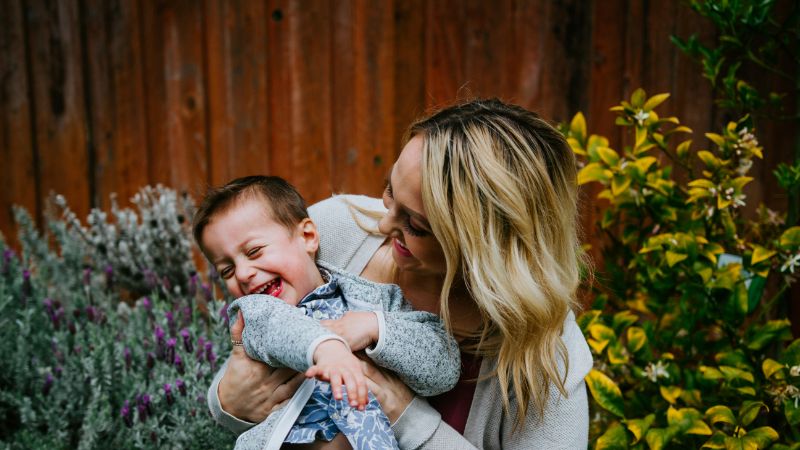
Authoritarian parenting has the best outcomes for kids and creates a more positive parent-child dynamic. The good news is that you can change your parenting style.
1. Understand What Authoritative Parenting Looks Like
Authoritative parents treat their kids with kindness and respect while holding firm on boundaries and disciplining with consequences.
I really struggled in the early years of motherhood and would often find myself reacting to my kids in an authoritarian way. I knew that shouting, yelling, and punishment were not the ways I wanted to parent, so I spent time learning how to identify my triggers and be a more responsive parent. Although the theory of positive parenting made sense, putting it into practice was challenging.
So here is the trick I used to shift to a more authoritative approach. Whenever I felt reactive, I would think, “Would I do/say this to an adult I love and respect? How would I feel if someone else spoke to or acted this way toward my child?”
Not only did I have to pause before reacting (because there is such power in the pause), but I also became more intentional about my actions.
2. Find Your Style
Understanding your current parenting style is important. You have to be aware of your default wiring to change the circuitry. If you know that you struggle with rules and boundaries, you can come up with an effective solution to help you be more firm, fair, and consistent.
If you have authoritarian tendencies, you can practice being more mindful in reactive moments and focus on shifting away from punishment and shame.
3. Focus on Your Relationship
Sometimes, the idea of changing your whole parenting approach can feel overwhelming. So, instead of tackling a paradigm overhaul, start by focusing on your relationship with your kids. When you prioritize love, respect, and communication, you will find that you make decisions more aligned with an authoritative approach.
4. Set Boundaries
We have a family agreement that lays out our core family values and the rules we think will help us live up to those values. It was important to me that rules and boundaries were decided collaboratively. I really believe that when we set boundaries with our kids, they will respect them.
For example, one of our core values is ‘mindful screen time,’ which applies to the whole family. So, if my kids have been playing Minecraft all day, I may say something like, “You have been playing a lot of Minecraft. Remember, we agreed to be mindful about our screen time.”
By simply stating what I see, I’m not judging or demanding that they stop playing. I’m reminding my kids of our family values and holding space for them to assess their behavior and decide on a course of action.
5. Logical Consequences
Sometimes, reminding them about our family rules isn’t enough. Although my kids sometimes put the device down and go and play outside, other times require me to discipline them with logical consequences. It’s important to note that the consequences always directly relate to my kids’ behavior, and they are aware of the consequences beforehand.
For example, if they continue to play Minecraft instead of doing their homework, the consequence will be no Minecraft during the week.
6. Positive Reinforcement and Communication
Authoritative parents don’t use shame and punishment to correct behavior. A simple way to reframe your child’s behavior and encourage a more positive dynamic is to focus on how you want them to act rather than the behavior you want to stop.
For example, I could say, “Why are you still playing Minecraft when I’ve told you to stop?” This a rhetorical question that invites conflict and introduces a power struggle between me and my kids.
But what would be more helpful is if I said, “Please head to the table for homework time.” Instead of shaming them for not listening, I’m focusing on what I want them to do and calmly and clearly directing them.
7. Ask Your Kids About Your Parenting
Now, this is a pretty confronting exercise, but it can also be extremely valuable. It’s crucial that you remain calm and unreactive. You are asking your kids to open up and be honest with you; they shouldn’t be afraid to do that.
Here are some questions you can ask your kids to help you understand your parenting approach.
- “How do you feel about our family rules and boundaries? Are there any rules you think are unfair or unnecessary?”
- “Is there anything you wish I did differently as a parent or something you think I could do better?”
- “How do you feel when I discipline you or provide guidance? Is there a particular approach that you respond to best?”
- “What makes you feel loved and supported by me as a parent?”
- “Do you feel comfortable coming to me with your problems or concerns? Is there anything that might make you hesitate to talk to me?”
- “How can I help you when you feel sad, stressed, or overwhelmed? Do you want me to do something specific in those moments?”
- “Is there anything I do as a parent that you would like me to do more or less of? How can I be a better parent for you?”
Parenting Styles Aren’t Set in Stone
Parenting is fluid and will change as both you and your kids grow. Being an authoritative parent means constantly assessing your approach and holding space for yourself and your kids as you navigate life together.
Find more of our favorite resources and related readings Here
There is nothing easy about parenting, but understanding how to have a more positive relationship with your kids can help you learn from mistakes and create a dynamic that helps everyone thrive.
Like this post? Click on the image below to share this on Pinterest – Thank you!









